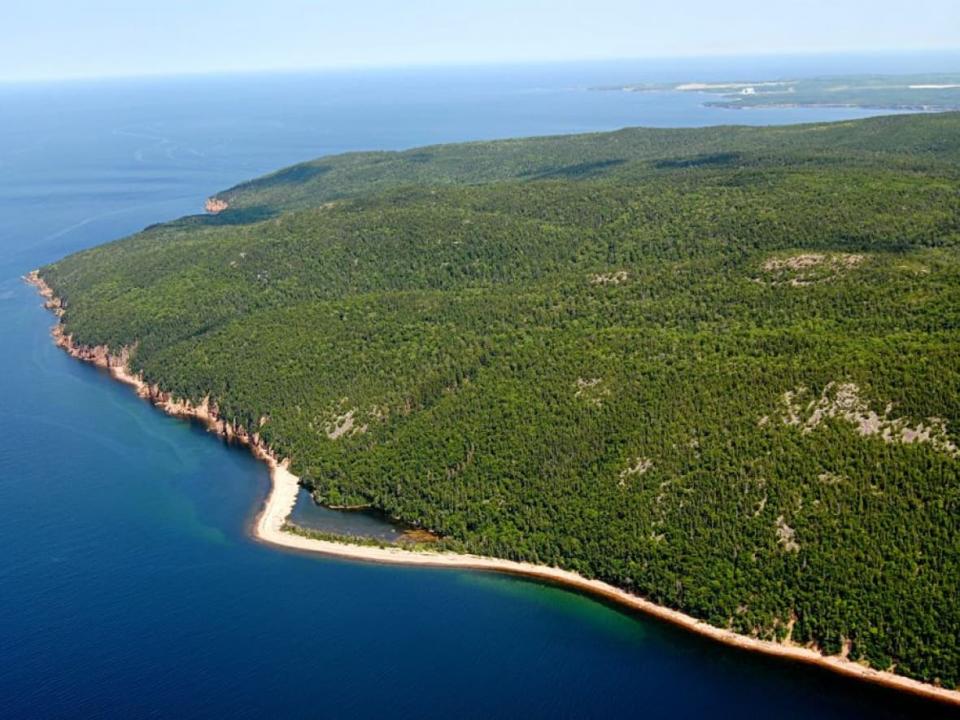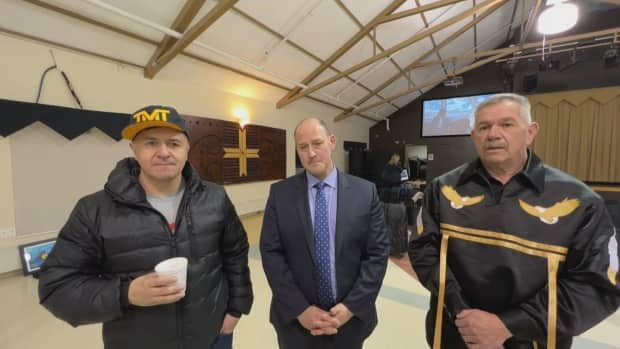Province, Mi'kmaq to share governance of Kluskap Wilderness Area in Cape Breton

A large tract of land in Cape Breton will soon be co-governed by familiar hands.
The Nova Scotia government and the Mi'kmaq of Nova Scotia signed an agreement Wednesday at the Wagmatcook Culture And Heritage Centre to share governance of the Kluskap Wilderness Area, which includes Kluskap's Cave. The nearly 2,800 hectare-parcel of land can be found on Kellys Mountain, or Kluskap Mountain, in Victoria County.
"This day is for our ancestors, this is for them and the stories they passed on, the Kluskap stories and the language and the land. That's where all the answers are," said Eskasoni First Nation Chief Leroy Denny.
"Today is definitely an honour and I'm sure our ancestors are smiling down upon us."
Wagmatcook First Nation Chief Norman Bernard said the agreement marks another step toward the Mi'kmaq having a voice in discussions on the very land they have been stewards of for generations. He said he looks forward to collaborating with provincial partners on the future care and protection of the land.
"Today felt good as a leader, working together with the province. That was a tremendous thing and what we need now is history being taught, it's very important history is taught to our kids, so they will have a better understanding of who we are," said Bernard.
Sacred to the Mi'kmaq
The Mi'kmaq believe the great prophet Kluskap once dwelled in an oceanside cave near Cape Dauphin, at the northern tip of the wilderness area. The Mi'kmaq consider the cave to be the centre of the universe and where Kluskap is expected to return one day.
The lore and mystery of the cave, known by locals as the Fairy Hole, also attracts people on foot through an unofficial hiking trail and by sea.
According to the province, Wednesday's agreement with the Unama'ki Institute of Natural Resources (UINR) — a First Nations voice for environmental issues on the island — outlines terms of the relationship, which will govern the long-term care of the land.

Nova Scotia Environment and Climate Change Minister Timothy Halman said the agreement has been in the works for years.
"What you're seeing is the result of that work, that collaboration, that I believe is now going to set a new tone and send us on a new journey together," Halman said.
Groundbreaking agreement
This is the first agreement of its kind between Nova Scotia and the Mi'kmaq. It has also led to the creation of a working group made up of equal representation from both UINR and the province.
"The document, developed collaboratively, provides the terms of our relationship that will see the wilderness area become part of the Kluskap's Cave Indigenous Protected and Conserved Area," said Lisa Young, UINR executive director.
"The IPCA will be an important place for our communities to reconnect with the land and water, a place to fulfil our responsibility to care for the land, and to share this knowledge for the betterment of all of Nova Scotia."
Karla MacFarlane, the province's minister of L'nu Affairs, said the agreement is another step on the path toward reconciliation.
MORE TOP STORIES

